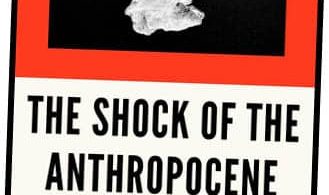Martin Empson says The Shock of the Anthropocene is a interesting account of the global environmental crisis, but it fails to offer to offer any alternative to the current system
Latest Articles
Ecosocialist Bookshelf, June 2017
Five new books on climate change and human health, ecology and imperialism in the global south, environmental economics, capitalism and universities, and the meaning of hegemony
Barry Commoner: Radical father of modern environmentalism
“The environmental crisis arises from a fundamental fault: our systems of production—in industry, agriculture, energy and transportation—essential as they are, make people sick and die.”
Planting trees cannot replace cutting CO2 emissions
'Save the planet: Plant a Tree!' It sounds good, but scientists say we can't avoid dangerous climate change without rapid cuts in fossil fuel use, starting now.
CO2, oceans, and atmosphere: a correction
Thanks to positive feedback from a geochemist reader, I can correct my description of the global carbon dioxide cycle.
Hal Draper on the Marx-versus-Engels myth
The ideologues who try to drive a wedge between Marx and Engels must ignore the simple fact that Marx read and approved of Engels' most important work.
Ecosocialist Bookshelf, May 2017
Five new books on climate change, the Anthropocene, water, and food. Plus: an inspiring account of the Russian Revolution by award-winning science fiction writer China Miéville.
No one can question the Australian government’s commitment to destroying the planet
For these politicians, it's a matter of political principle: Earth's ability to support life must be undermined as quickly and thoroughly as possible.
The significance of Naomi Klein: An ecosocialist exchange
Should ecosocialists support or distance themselves from the author of This Changes Everything? Richard Smith and John Bellamy Foster discuss the prominent activist’s role.
I know I shouldn’t brag, but …
'Facing the Anthropocene' is now in its second printing, and Paul Burkett's brilliant new article is is essential reading for everyone who is concerned about changing and saving the world.









